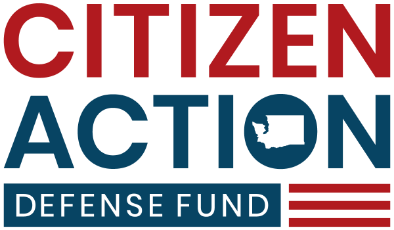We at CADF hope that all our readers had a peaceful, fulfilling, and filling Thanksgiving this year. And if the politics talk did get out of hand, we at least pray it was over and done with before dessert. You can read last week’s post for more Turkey-centric fare.
This week we address an issue that has avalanched in recent years. We hesitate to call it a crisis—for fear of crying wolf more than anything else. That said, if there is no course-correction soon then the term will become more than fitting. Zero bail. From Seattle to Spokane and everywhere in between, misguided prosecutors and judges regularly release accused violent offenders without bail. Indeed, without giving them any good reason to return for later hearings. And, to nobody’s surprise, many of those charged and churned under this ad hoc “program” proceed (allegedly) to commit additional crimes before their next scheduled court date. Since King County judges began releasing suspects “on [their] promise to appear” about two years ago, Seattle and its suburbs have seen scores of suspects with violent histories released back onto the streets, where they will often reoffend—including at least one recent suspect who, according to police, poses a “staggering danger to the community.”
Part of the problem is manpower. With just “25 judges” as of 2022, the King County district court punts a good deal of its caseload to roughly three dozen “pro tempore” judges—“unelected fill-ins.” These temporary judges are not—nor should they be—equipped to deal with the sheer volume of arraignments. Another concern is capacity. As crime has ticked up in recent years, so have demands on dwindling law enforcement and packed detention centers. And with covid came a novel medical twist to longstanding debate over whether overcrowded incarceration creates more criminals than it reforms. Zero bail appears a convenient solution to some of these difficulties—at least from an upper-floor view. Those at home and walking the streets have a very different vantage point, however.
While not many studies have been done on zero bail, one from Yolo County, California’s district attorney found that about 71% of their inmates released without bail were rearrested before conviction. This did not dissuade Los Angeles County from instituting an across-the-board zero-bail policy, which, to our pleasant surprise, faces a coordinated lawsuit from over a dozen of its municipalities. The sheer volume of reported tales of pre-trial recidivism and failures-to-appear across Washington suggest that things are not much better in the Evergreen. And not just around Greater Seattle.
In 2021 in Spokane County, over 600 suspects accused of violent crimes were released without bail. Here are some stories from just the last few months. In August, a Tacoma woman accused of assaulting officers and then released on zero bail failed to appear at her next court date. In Liberty Lake, near the Idaho border, a man accused of trying to lure a teenage girl into his car walked without posting bail. In Thurston County, a suspect who led police on a violent car chase walked free and clear within hours—part and parcel of what State Representative Travis Couture has called “a growing problem that sends a clear message to criminals that their actions have no consequences and Washington will not hold them accountable.”
There doubtless are legitimate reasons for reducing bail rates.
Black suspects have long been held on no-to-high bail at greater rates, nationwide, than have their White counterparts, with few solid explanations beyond bald racial bias. And then there is the solemnity of “innocence until proven guilty.” That is, there is much to be said for limiting arrestees’ financial exposure from indictments. Especially so in an age of chronic distrust of the justice system and widespread (and well-earned) disdain for pretrial civil asset seizures. Simply put, there are a host of worthwhile policy reasons for lowering the incidence and size of bail deposits as a condition for release. But many of the loudest zero-bail advocates have other priorities in mind.
In December 2022 the Wall Street Journal detailed Seattle’s Northwest Community Bail Fund, an organization which crowdsources bail posts. In divvying cash, the Fund considers some useful criteria—“ability to afford bail amount,” “impending loss of job, housing or shelter,” etc. One omission stands out like a sore thumb, however: “the list didn’t include prior criminal record.” Meanwhile, 52% of arrestees bailed out through the Fund (thereby removing their personal pecuniary interest in appearing) failed to make their next scheduled court date. The corresponding failure rate for traditional bail-outs was only 24%. Asked to comment, the Fund’s executive director referred the Journal reporter to a tip sheet—“Don’t be a Copagandist”—which, among other things, decried policing as “fundamentally brutal and violent,” and “designed []to control people and protect capital.”
Well, yeah… We at CADF wouldn’t use such obviously loaded terms, but policing ultimately is about protecting property and controlling what people do to each other. In a stable society the rules that dictate when this control is exercised will be fair and just and will, in general, conform to the public’s moral sensibilities. Qualms with criminal laws and methods of enforcement is one thing; but there is no utility in broadbrushing the entire law-enforcement ecosystem. In the same vein, historical and lingering injustices surrounding bail do not demand total dismemberment but rather gradualist and well-researched policymaking.
Yet nothing about the bail “reforms” Washington counties and cities have witnessed in the last few years indicate a systemic or scientific approach. Those of us looking for more measured solutions often face a crowd that (we fear at times willfully) misconstrues our endgame as something other than safe streets at less than the cost of our basic freedoms. Accusations of bias or ideological corruption are often on order. Slings and arrows aside, we have no interest in seeing people detained simply because they cannot afford their release. Quite the opposite. And so we applaud those fighting in the trenches. Proponents of real bail reform have our attention—and our respect.
As government watchdogs, we at CADF are among the last people to advocate for more robust law-enforcement mechanisms just for the heck of it. But in their current form, zero-bail practices are far from systematic—and that is precisely the problem. No amount of social-justice wordsmithing or official reassurances will make it so. Washingtonians deserve the most optimal balance between freedom and safety that government can deliver. Right now zero bail isn’t doing it, and it is high time for some of its most vocal proponents to seriously rethink their positions. For officials, coaxing indictees to court on more than just their scout’s honor would be an excellent start.
Alki,
Sam Spiegelman

